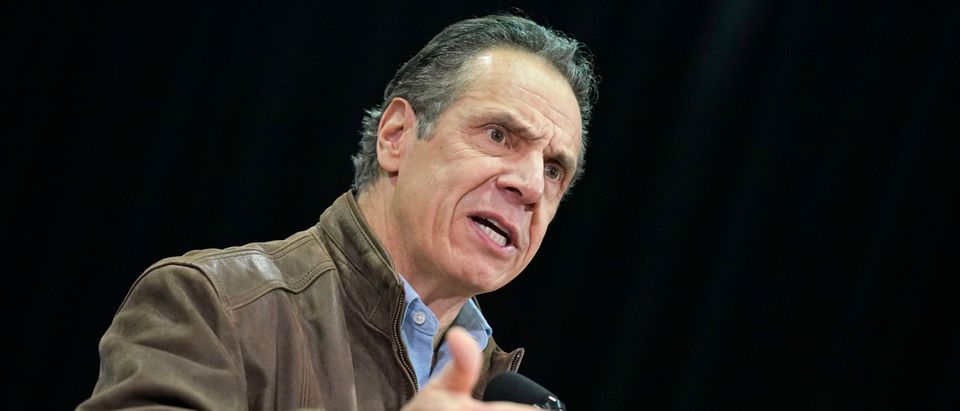New York State Assembly Speaker Carl Heastie and Senate Majority Leader Andrea Stewart-Cousins, both Democrats, called on Democratic Gov. Andrew Cuomo to resign Sunday over mounting sexual misconduct allegations.
“We need to govern without daily distractions. For the good of the state, Governor Cuomo must resign,” Stewart-Cousins said in a statement.
NEW: Bombshell. @AndreaSCousins calls on @NYGovCuomo to RESIGN. pic.twitter.com/tZBwSyV5h8
— Zack Fink (@ZackFinkNews) March 7, 2021
Stewart-Cousins had said on March 4 that if any more accusers came forward against Cuomo then she would call on him to resign.
Ana Liss, a former aide, told the Wall Street Journal on Saturday that Cuomo would make inappropriate comments about the appearances and dating lives of female employees, and hugged and kissed her. Liss marks the fifth woman to come forward with allegations against the governor.
Heastie described the allegations as “deeply disturbing, and have no place whatsoever in government, the workplace, or anywhere else.”
NEW from @CarlHeastie : pic.twitter.com/jQPrXBLGEd
— Katie Glueck (@katieglueck) March 7, 2021
“I too share the sentiment of Senate Majority Leader Stewart-Cousins regarding the Governor’s ability to continue to lead this state,” he continued.
Earlier on Sunday, Cuomo, who supported a 2019 New York state law that lowered the burden of proof for sexual harassment allegations, dismissed “the premise of resigning because of allegations [as] actually anti-democratic.”
“I am not going to resign because of allegations,” Cuomo says, calls it anti-democratic and questions credibility of accusations against him
— David Freedlander (@freedlander) March 7, 2021
“I was elected by the people of the state. I was not elected by politicians. I’m not going to resign because of allegations,” Cuomo said in a call with the press before Stewart-Cousins and Heastie called for his resignation.
“The system is based on due process, and the credibility of the allegations. Anybody has the ability to make an allegation in a democracy, and that’s great, but it’s in the credibility of the allegations,” he continued. (RELATED: ‘He Knows He’s In Real Trouble’: New York Times Reporter Describes Andrew Cuomo Sexual Harassment Apology As ‘Breathtaking’)
In 2019, however, Cuomo signed into law SB 6577, which lowered the burden of proof for sexual harassment allegations. Under SB 6577, “harassment would [not need to] be considered severe or pervasive under precedent applied to harassment claims.”
In addition, the legislation also said the lack of an existing written complaint “to such employer, licensing agency, employment agency or labor organization shall not be determinative of whether such employer, licensing agency, employment agency or labor agency shall be liable” for a sexual harassment claim.
Cuomo later appeared to threaten state lawmakers who have called for him to resign over the allegations.
Wow, Cuomo on @Biaggi4NY calling for his resignation, says in a sort-of hypothetical threat:
~”Let’s release all the allegations JCOPE has against senate members and put them out in the public arena and then decide publicly if those senators should resign… That’s absurd”
— Harry Siegel (@harrysiegel) March 7, 2021
“We set up this whole elaborate process, but the accusation was private. Why? Because it’s damaging to publicize allegations before you know they’re credible. [the Joint Commission on Public Ethics] has hundreds of allegations,” Cuomo said, according to Daily Beast editor Harry Siegel.
Former staffer Lindsey Boylan first accused Cuomo of sexual harassment in December 2020. Since then, four other women have come forward saying that he behaved inappropriately. Cuomo has denied the allegations, but apologized for his comments that may “have been misinterpreted as an unwanted flirtation.”


